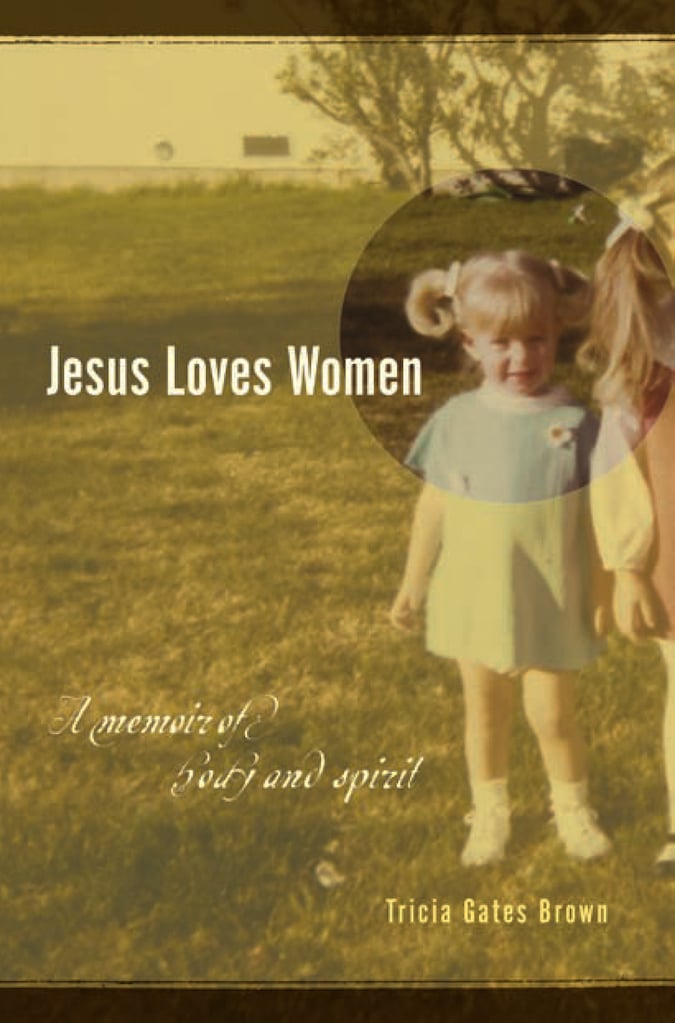{Excerpt from Jesus Loves Women: A Memoir of Body and Spirit, DreamSeeker Books, 2011}
That spring I read Thomas Merton’s New Seeds of Contemplation, then his book on contemplative prayer. The stirring I feel during lauds at the abbey piques my interest in contemplation and the monastic life, and Merton helps explain them. But Merton’s way of looking at prayer and the spiritual life are relevant to a non-monastic life as well. They hold my interest. Merton’s emphasis seems to be on effortlessness. Prayer, according to my interpretation of Merton, is an open-handed surrender to a spiritual connectedness happening at all times, in all places, forward and backward into eternity. To participate in this connectedness one needs to cultivate a readiness for prayer—a readiness that allows one to enter into the prayer that is already happening.
Since childhood I’d heard the injunction to “pray without ceasing,” but it never made sense to me. How can one say prayers all the time when there are other things to get done? But Merton taught that the life of prayer is not about saying prayers or having thoughts. It is openness to God’s presence. It is connectedness to the divine undercurrent running through all things. It is available to anyone at any time. Merton’s emphasis on humility and emptiness as a path to true prayer rings true for me, as does his desert-language. The more I strip away, the more I rescind into silence and solitude, the more I feel ready for whatever is to come next, for whatever lies beyond the surface of my experience. For God, whomever and whatever God may be. Therefore, I stop trying to pray correctly. I stop trying to pray at all. Instead I try to notice divine presence and prayer inside of me and around me.
With the abbey, I arrive at summer. Clover and moss give way to purple and gold mountain irises, to wild roses and ripening crabapples. Lacy oaks and firs reflect in the azure depths of a quarry lake, in duck ponds just beyond the guesthouse. Ivy creeps up the trees for light. Blackberry briars extend barbed tentacles into every unoccupied space, and ferns burst open like the sky on a clear summer day. Fully leafed maples, towering cottonwoods, all shimmy and throw light like sequined dresses. The torpid, dusty air glitters. Bugs and butterflies, hummingbirds and salamanders, appear and disappear, and at night coyotes howl.
I begin to change my spiritual practice as a result of my reading. First I stop making words in prayer. Not entirely, but almost. Since I no longer see prayer as something that happens in the head, as thoughts, words, or requests, I set myself free from words. If prayer is tapping into God’s presence and light, and if one can stay tapped in always through a posture of openness, humility, honesty, and love, then words are not important. If I do “say a prayer” for another person, it is not forced. I pray only as I am moved to pray, as compassion connects me to the love God has for someone I encounter. One of the most helpful things I learn from Merton is that prayer is not another thing to get done, another thing to be good at. Prayer is something that is done in me if I allow it to happen.
One summer while visiting the abbey, I bring along an old book by Evelyn Underhill, entitled The Spiritual Life1, and find Underhill writing about the same anti-effort type of spirituality as Merton. She says, “A spiritual life is simply a life in which all that we do comes from the center, where we are anchored in God” (p. 32).
If spiritual life is about letting God enter everything we do, as it seemed to be according to the writers I was reading, then, I suddenly realized, I didn’t need to strive and work at it, something I had always failed at as a young person. All I had to do is receive it.
Receptivity is its own kind of effort, I suppose, but it seems to be the effort of letting go of all effort. If spiritual life is a constant opening up of our hands and letting go, or an awareness of when we are shutting God out and worrying what to do next, all we can do is begin again (and again and again . . . ) in an “effort” to let go of effort and keep trusting.
Growing up, I’d felt like a miscreant according to the scales of “proper Christian behavior,” especially those set aside for girls. I was too lustful, too opinionated and defiant of authority, too open-minded and questioning. As a child I had learned that rightness with God entailed stepping into a box, walking the straight line strung out by the church, being a good girl according to a fundamentalist definition of goodness, things I seemed incapable of doing. All my life I had been thirsty for the teachings on effortlessness I encountered in Merton and Underhill.
I drink them up. Maybe I am not a spiritual failure after all? I wonder. Maybe doing everything right has nothing to do with the spiritual life, and the nature of that life is a mystery to be unveiled. Both Merton and Underhill emphasize love as the outworking of the spiritual life, the fruits of what happens when we let God fill us. Not a sentimental love, but an unselfish, compassionate love. I don’t fully understand what this means, and I wonder how we can both give up striving and yet love in a self-giving way, which sounds to me effortful. Yet something of this resounds in me.
I have experienced moments of aching love for people, of compassion, and those moments have been, in fact, effortless. I want to believe that this eagerness to love is in some way an expression of God. I have ached with love for my daughter; for a tormented mentally challenged boy named James I had known as a girl; for the wallflowers in high school whose hearts got mercilessly broken; for the lonely old man who came into the library almost daily for stacks of theology books; for the glue-sniffing, prostituting street kids I got to know at a Portland drop-in center where I volunteered; for the kid up the block whose father abused him; for Tom; even for Alex in his stubborn brokenness. I feel in my gut that God is in that love, and in all love, even when the lovers are bawdy and foul-mouthed and addicted. Somewhere deep in my soul I know it is this loving that matters, that through this kind of loving, God is found.
Wren, winner of a 2022 Independent Publishers Award Bronze Medal



















